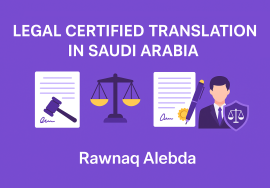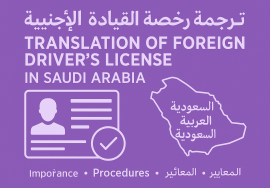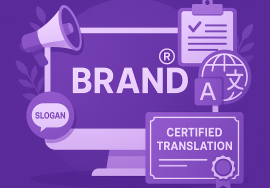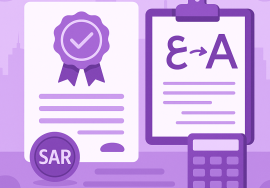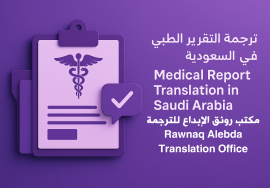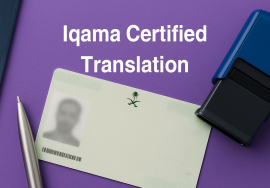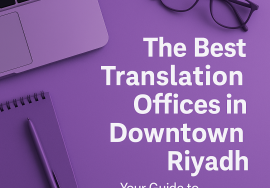
The Role of Certified Translation Offices in Saudi Arabia
Table of Contents
Certified translation offices form a vital part of the linguistic infrastructure in Saudi Arabia, playing a key role in facilitating communication between different cultures. With the rise of globalization and the growing flow of information across borders, reliable and accurate translation services have become a necessity.
In this article, we explore the role of certified translation offices in Saudi Arabia and how to identify accredited providers.
The Importance of Certified Translation Offices
Certified translation offices play a vital role across multiple sectors by ensuring accurate communication and supporting the global exchange of information. Their key contributions include:
- Facilitating Communication: Translation offices bridge language gaps between individuals and businesses, offering certified translation services for official documents, contracts, and legal texts, which streamlines trade and investment operations.
- Supporting Education: By translating curricula and textbooks, translation offices help foreign students better understand academic content and also provide educational materials in Arabic for non-native speakers.
- Ensuring Legal Compliance: Government agencies and official institutions often require certified translations of birth certificates, marriage licenses, and commercial records to guarantee their legal validity.
- Promoting Tourism:Translation services enhance the tourism experience by helping visitors understand cultural, historical, and logistical information, making Saudi Arabia more accessible to international tourists.
How do you know if a translation office is accredited?
Accreditation is one of the most important criteria to verify when choosing a translation office. Here are some steps to ensure the office is accredited:
- Licenses and Certifications Check for official licenses that prove the office operates legally. In Saudi Arabia, the office must be registered with the Ministry of Commerce and Investment, and you can verify this by visiting the ministry’s website or contacting them directly.
- Accreditation from Official Bodies The office should be accredited by official entities, such as embassies, consulates, or government agencies. You can ask the office about the entities they are accredited by, as this information will provide indicators of their credibility.
- Reputation and Reviews Look for reviews and opinions from previous clients. You can visit social media or specialized forums where clients share their experiences with different translation offices. A good reputation reflects the quality of service provided by the office.
- Quality of Translation Request samples of the office’s previous work. You can provide a simple text for translation and compare the translation with the original content. Ensure the accuracy of the translation and the fluency of the language used.
- Inquire About Experience Ask about the experience of the translators working in the office. They should have a strong academic and linguistic background, as well as experience in specific fields like law, medicine, or technology.
- Professional Certifications Check if the translators have professional certifications from recognized organizations. Certifications like “Certified Translator” or “Legal Translator” indicate a high level of competence.
- Communication and Professionalism Ensure that the office interacts with you professionally, including prompt responses to inquiries and the ability to provide customized services according to your needs.
Challenges Facing Accredited Translation Offices
Despite the vital role that translation offices play, they face several challenges, including:
- Diverse Languages and Dialects: Translators need to have a precise understanding of different languages and dialects, which increases the difficulty of translation in some cases.
- Technological Development: With the emergence of machine translation software, translators face challenges in maintaining the quality of human translation. They must adapt to this technology without allowing it to negatively impact the quality of their services.
- Competition: There are many translation offices, which increases competition. Offices must provide high-quality services at competitive prices to attract clients.
- Information Security: Translation offices must ensure the protection of clients’ sensitive information, especially when dealing with legal or medical documents.
Conclusion
Accredited translation offices play a vital role in Saudi society, contributing to enhancing communication between different cultures and facilitating business. By following the above steps, individuals and companies can ensure the accreditation of the offices they deal with, ensuring accurate and reliable translation services. Investing in accredited translation services is not just an option but a necessity in today’s connected world.

